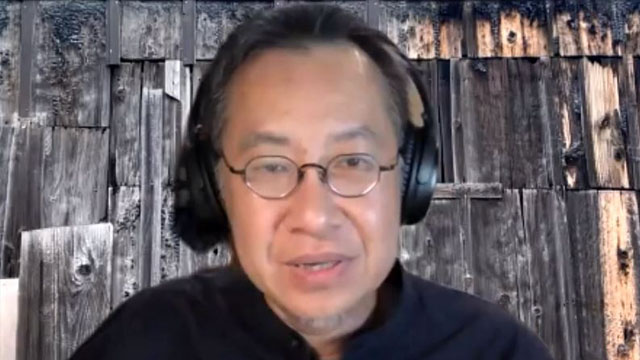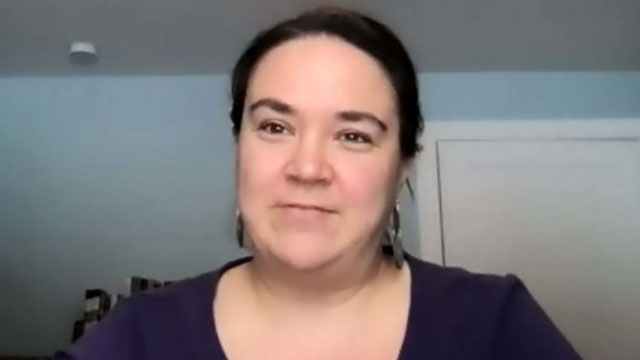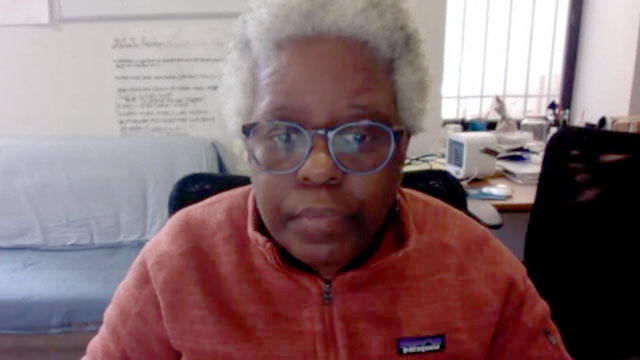by Jas Sarna, School of Arts and Sciences and SAS Honors Program Scholar, Class of 2024
The Bloustein Social Justice Committee held a virtual event in late February regarding food justice in urban planning. The event, a follow-up to their earlier event discussing the importance of art and culture in urban planning, focused on challenging the idea that food is trivial in planning and talked about the far-reaching benefits of food justice in communities. Featured speakers included Jeff Hou, Professor in the Department of Landscape Architecture at the University of Washington; Teresa Mares, Associate Professor in the Department of Anthropology at the University of Vermont; and Sheryll Durrant, Kelly Street Garden Manager and Board President of JUSTFOOD, a nonprofit addressing food inequity in New York City.
Dr. Hou explained his work and his experiences with community gardens. Detailing their importance for food justice he said, “Urban gardens enable ethnic communities to grow food that is important to their culture. Growing food supplemented their income by reducing their grocery bill, how it strengthens social cohesion, builds social capital, and produces knowledge”.

He went on to describe the history of the Danny Woo Community Garden in Seattle, Washington, and its emergence in the 1970s following protests against the construction of a sports stadium in the area. To the people of the community, it serves as a place for socializing in addition to growing food. Through the University of Washington Neighborhood Design/Studio Build program, embellishments have been made to the Danny Woo Garden including a community kitchen, dining space, class and concert space, and tool sheds. With these structures in place, the community garden transforms into a lively community hub known for hosting memorable events.
Dr. Hou then recounted the Capital Hill Occupied Protest- CHOP Garden in Seattle. Following the death of George Floyd in June of 2020, standoffs between protestors and Seattle Police led to a six-block area, including Cal Anderson Park, being taken over by protestors. The community garden they built in that occupied space served to bring more people to the protests and educate and address more inequalities. It also became a place of refuge from the conflict and a resting place for protestors. When CHOP Garden was reoccupied, the participants went on to work in other community gardens. Hou ended the discussion of his work by speaking on CHOP Garden’s legacy and how it is helping to start conversations on how to change public spaces, including Cal Anderson Park, to be more inclusive.

Next Dr. Teresa Mares spoke on her work addressing food injustice in rural Vermont which looks at migrant farmworkers in the dairy industry. Dr. Mares explained how her work has challenged the U.S.D.A.’s tools for defining food insecurity. She pointed out how food security is more complex than just having money. She argues that food insecurity should incorporate ideas like avoiding border control, lack of mobility, having to rely on third parties to access food, and having limited access to cultural foods, all of which are especially relevant for undocumented workers.
To deal with this issue, Dr. Mares has worked to build community gardens in the areas where these workers lived to help address their need for more food and more culturally familiar foods. Huertas, translating to gardens, is the food security initiative managed through the University of Vermont’s Extension’s Bridges to Health Program. While admitting that there were limitations with the Huertas due to geography, weather, and the immobility of a garden made for mobile communities, Dr. Mares highlighted the benefits of community gardens. She said, “Gardens can give people a really powerful way of maintaining connections to culturally familiar foods, to share those foods with their children who might be very far away from their home cultures, and it also becomes a sight of much more than food production.”

The Kelly Street Garden in the Longwood section of the South Bronx, NY was then introduced by Sheryll Durrant. She described how the area is subject to environmental pollution from trains, traffic, and Hunts Point and how Kelly Street Garden helps address the food insecurity issue in the area. In the year since the pandemic started, Kelly Street Garden has helped distribute over 25,000 pounds of food. She credits this achievement to funding partners, farms that worked with the garden, and volunteers that helped make distribution possible.
To the people of the South Bronx, Kelly Street Garden is about more than just food. There, they host various programs touching on topics like EBT and SNAP benefits, cheap recipes and cooking, yoga, and art. In explaining the power of Kelly Street Garden, Ms. Durrant said, “At Kelly Street Garden, our connection to land is about reclaiming space, repairing something, building a thread, weaving a fabric, and coming together as a South Bronx community. We seek to bring the bounty of the land to everyone. We seek to find abundance in place of scarcity because, in fact, there is no scarcity, just greed. And as I think about my relationship to the planet, I’m not interested in owning land- I am interested in stewardship and solidarity.”
The program then moved to questions from the audience. The speakers addressed how lively community garden spaces are and how much they bring to the areas they are located in. Dr. Hou talked about how Cal Anderson Park being accidentally chosen as the CHOP garden location turned out to be perfect because of the community there, while Dr. Mares spoke on the unique challenges of the migrant workers in rural Vermont dairy farms and how specific their experiences were with the Huertas. Ms. Durrant talked about engaging children from local schools in Kelly Street Garden and how they return year after year and recognize a passion for urban agriculture. Each speaker reiterated how community gardens represent something greater than food alone to the people of the area.
Addressing how community gardens incorporate advocacy, Ms. Durrant said “Food to me is the gateway to all things justice. If we can’t tackle that, we can’t tackle housing, we can’t tackle anything else. We need equity in food first and then once we achieve that goal then all the other goals that we aspire for will be more achievable.” The program soon concluded with thanks to the panelists and participants were tasked with thinking about the immense value of community gardens in urban planning and their ability to effectively address food injustice and larger communal issues.
